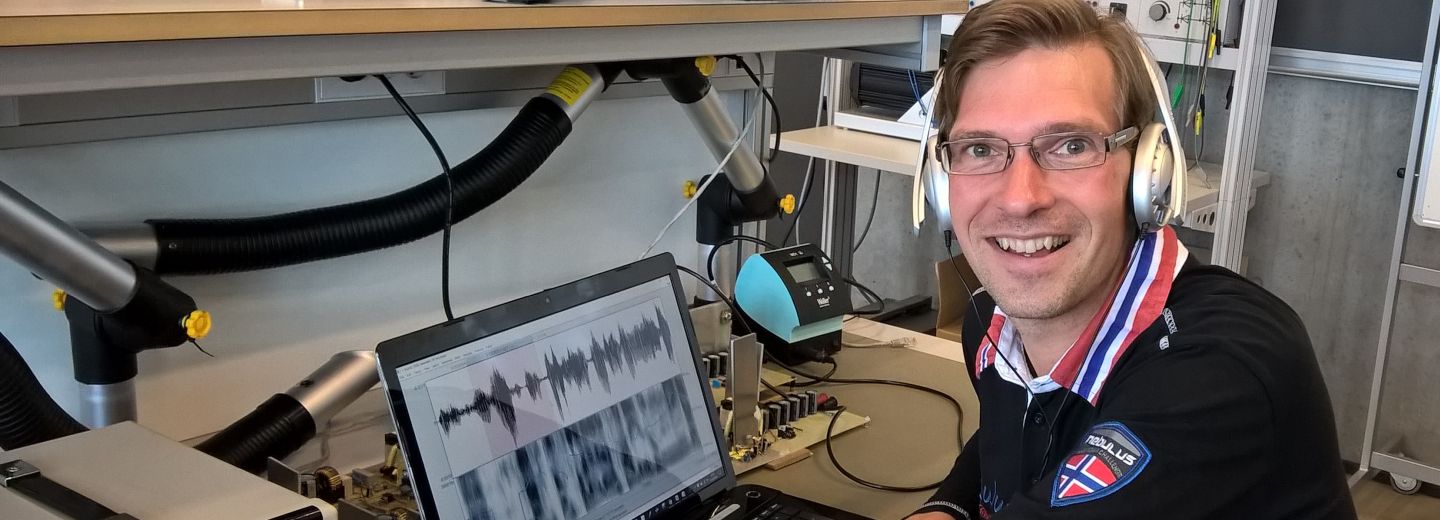
Workshop in Sønderborg builds bridges
You probably understand what Siri, Alexa and Google tell you. But do you really like to talk to these programs, and are they always spot on, when they speak to you? Probably not. A group of international speech and language researchers, who met last week in Sønderborg, are working to do something about that.
DIMA’s work is focusing on how language is being used in conversations. This concerns for example voice, intonation, tempo and rhytm. The scientific term for this field is prosody, which is currently a hot topic among researchers, as prosody plays a key role in conveying emotions, opinions, humor, charisma and personality. Understanding this part of language is particularly important today, where cross-cultural differences, social media, digital communication and human-computer-interaction is an essential part of our lives.
Want to contribute to an international standard for talking machines
The overall aim of DIMA is to contribute to the development of an international standard for programming talking machines, says workshop host Oliver Niebuhr, associate professor at the Mads Clausen Institute at SDU.
– To succeed with this aim, we need computational linguistics, traditional phonologists, phoneticians, and experts in speech acoustics and human-machine interfaces. These areas of research – that typically go across the faculties of engineering, social science and humanities – are all represented in the DIMA group. In this respect, the DIMA workshop not only builds bridges between countries, but also research disciplines. As communication is complex, any approach without such bridges would fail. And this extensive and diverse collaboration is ideal for developing new ideas and strategies, explains Oliver Niebuhr.
The Mads Clausen Institute and the new Centre for Industrial Electronics at SDU in Sønderborg were hosting the workshop. With their strong industry contacts, the institute and the centre are fertile ground for developing DIMA’s work and disseminate its results into the wider world, for example to persons working with speech in technology and social media, Oliver Niebuhr assesses.
Sønderborg’s great mix
The DIMA workshop is just one of several examples of the collaboration between SDU, institutions and companies on both sides of the Danish-German border. According to Oliver Niebuhr, these international gatherings are beneficial for both the research group as well as for SDU more generally.
– With its location in the borderland where Danish and German languages meet and mix, Sønderborg is just the right place to study language. Especially when it comes to understanding charismatic tone of voice, Sønderborg is an internationally leading research site, closely connected with universities in Prague, Bielefeld, Nuremberg, Los Angeles, Sao Paolo, Barcelona, and Milano, Oliver Niebuhr explains.
He also believes that Sønderborg with its location, size and combination of city and nature at the same place makes it a suitable host city of international conferences.
– In Sønderborg we have good conference facilities, and everything is within walking distance. International conference participants can easily reach the university from their hotels, and on the way pass the waterfront promenade and many nice restaurants. With its own small airport, Sønderborg is well-connected to Copenhagen Airport. All in all, Sønderborg combines the spirit of a traditional Scandinavian village with the modern infrastructure of a university city. For many international guests, this is a great mix, concludes Oliver Niebuhr.
FACTS – DIMA VIII
The DIMA VIII workshop was held at University of Southern Denmark in Sønderborg on 19-21 September 2018 and has been supported by Inspiring Denmark. It is the eighth workshop of the DIMA research group, and the first to be held in Denmark.
More information on DIMA’s work can be found on the project website.